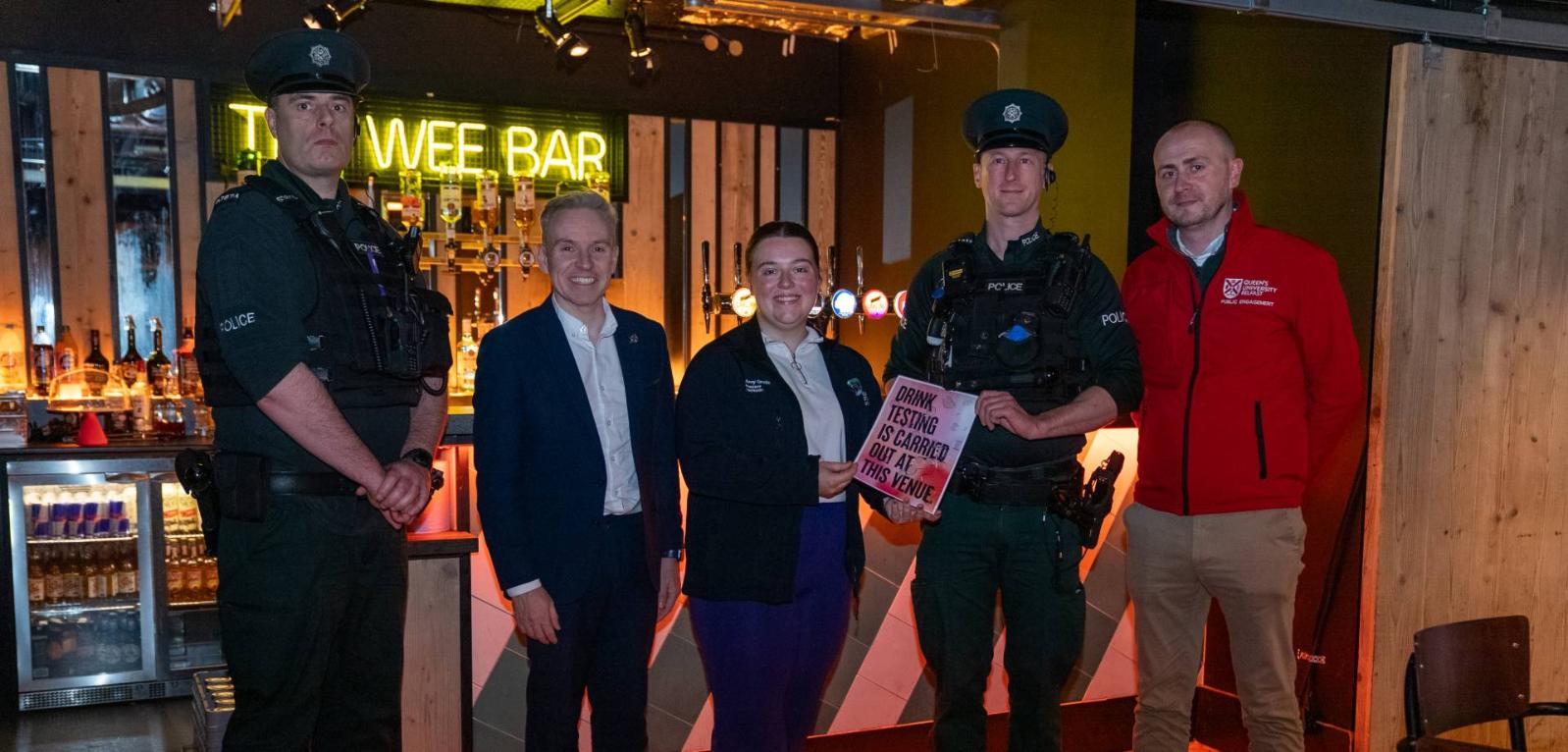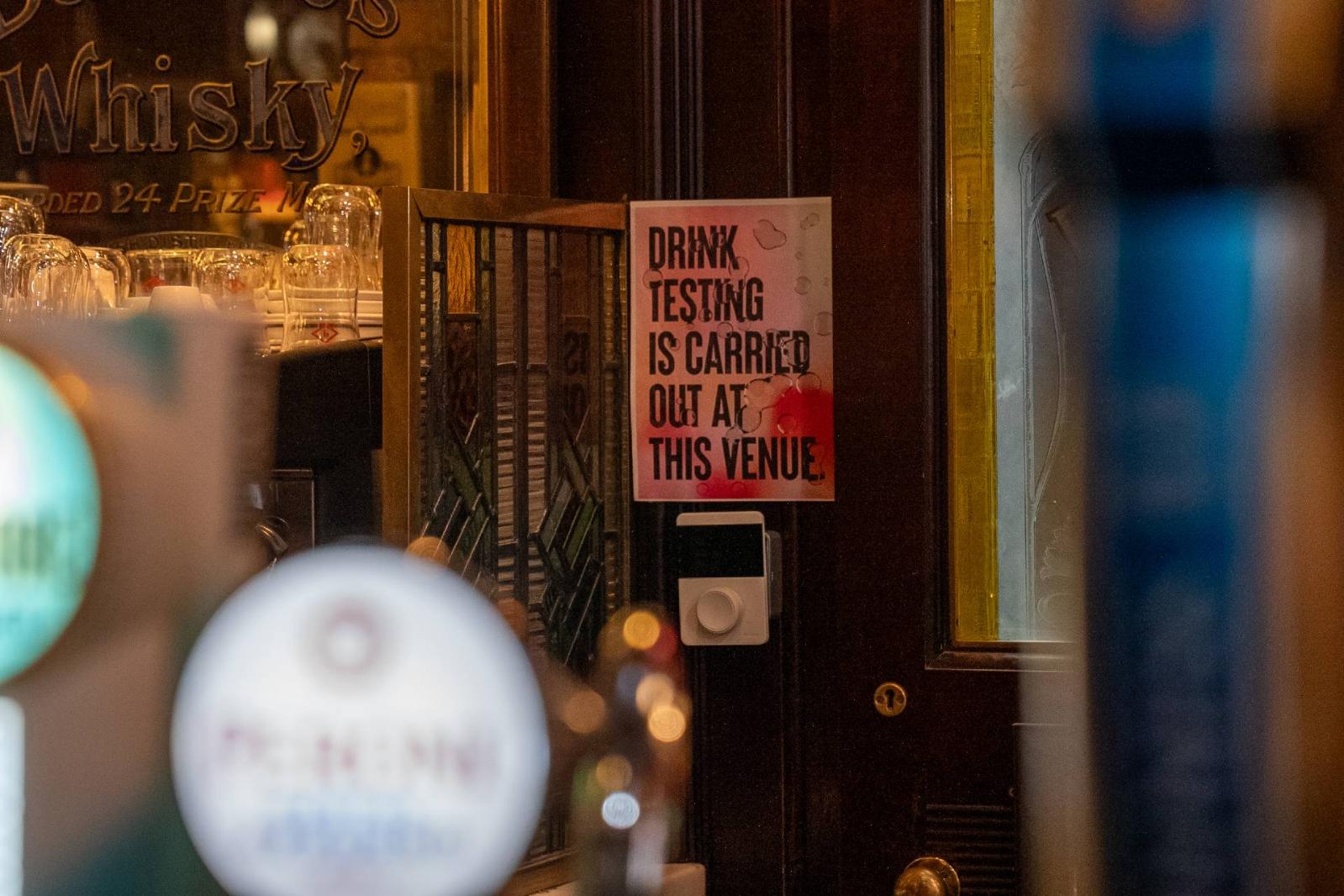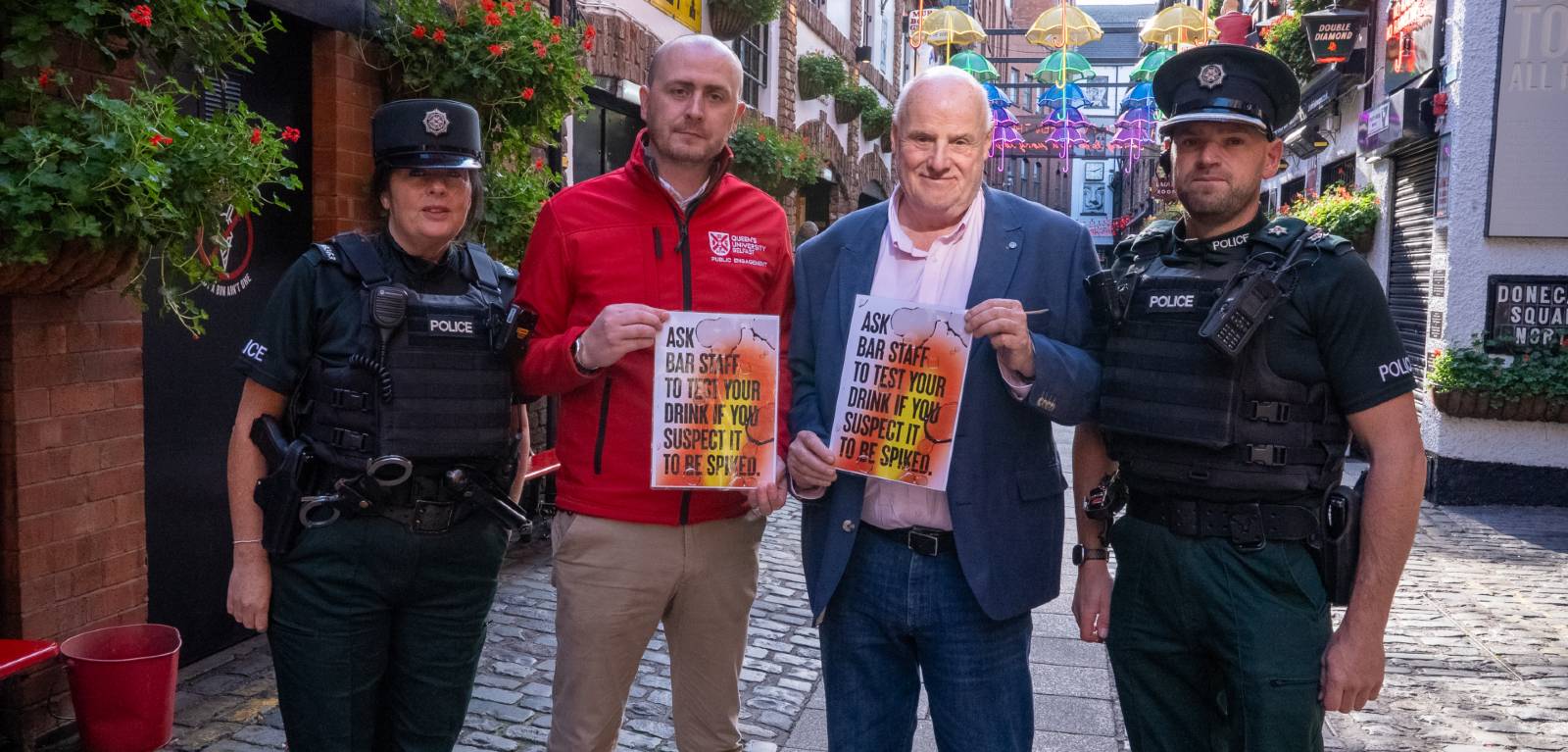Queen’s and PSNI launch initiative to prevent drink spiking in Belfast
As students return to university for the start of a new academic year, Queen’s University Belfast has teamed up with the PSNI to launch a new, proactive initiative to help prevent drink spiking in bars and clubs across Belfast.

The ‘Drink Check’ initiative was launched during Freshers’ Week and is designed to provide reassurance, raise awareness, and deter potential drink spikers, helping to ensure that Belfast remains the safest city in the UK for students to live and study.
Queen’s Neighbourhood Engagement team spearheaded the initiative after listening to concerns raised by students who were worried about potential drink spiking. While reported cases of drink spiking in Belfast remain low, Queen’s is committed to working closely with partners and Queen’s Students’ Union to promote student safety.
Through the project, Queen’s University has purchased specialist drink spiking test kits, and partnered with PSNI to distribute and manage them across 33 popular Belfast venues- The Queen’s Students’ Union Bar, The Botanic Inn, The Hatfield, Bootleggers, The Points, Thompsons, Lavery’s, Limelight, Lux Nightclub, The Maverick, Happy’s Belfast, The Marcus Ward, Kremlin, Revolution De Cuba, Wetherspoons, Liquid, The Harp Bar, The Duke of York, Haymarket, White’s Tavern, The Dirty Onion, The Thirsty Goat, The Parlour, Common Market, 39 Gordon Street, Beehive, The Telegraph Building, The Dark Horse, The Crown, Brennans’ Bar, The Empire, Robinsons, and Benedicts.
Each participating venue will display posters making it clear that drink testing is available on-site - a visible deterrent to anyone considering spiking a drink. They have also been supplied with drink testing strips. If a customer believes their drink may have been tampered with, they can bring it to the bar where staff will check it using the test kits. If the test indicates spiking, the PSNI will be notified and will investigate. CCTV from the venue will be checked to help identify the individual responsible.

In addition, all venues involved in the initiative have been provided with ‘Ask for Angela’ materials - a discreet mechanism that enables patrons to use a code-word to seek help from bar staff if they feel unsafe or vulnerable.
Amy Smith, Queen’s Students’ Union President, said:
“This initiative is all about prevention and reassurance. We know that spiking is a concern for students, so it’s great to see the University listening and taking proactive steps to make sure it doesn’t become an issue. The ‘Drink Check’ initiative is another way of making our city even safer.”
Dr Ryan Feeney, Vice-President, Strategic Engagement and External Affairs and Registrar at Queen’s, added:
“Student safety is our top priority, and this partnership demonstrates our commitment to working closely with the PSNI, local venues, and our Students’ Union to address concerns before they escalate. By introducing visible deterrents like testing kits and awareness campaigns, we want to support our students to feel safe while enjoying a night out.”
PSNI Superintendent Allister Hagan, said:
“While we do not see evidence of widespread or routine drink spiking, we understand the concern it causes. Every report is taken seriously, and we have a bespoke response plan to both support victims and robustly pursue offenders.
“This initiative provides reassurance that there is an additional safeguard for those enjoying the night-time economy, and it complements the wide range of harm prevention measures already in place. Our Crime Prevention Team works closely with licensees and trade bodies to ensure effective use of CCTV and robust incident response plans. Licensed premises continue to play a vital role in safety, supported by SIA-trained staff who have received bespoke training and are routinely deployed across the sector.
“Alongside this, police and partners promote initiatives such as ‘Ask for Angela’ and safe spaces, as well as engaging directly with young people about personal safety. Together, these measures help build confidence that Northern Ireland’s night-time economy is vibrant, welcoming and safe.”
Willie Jack, proprietor of several bars taking part in the initiative, added:
“Commercial Court Inns Ltd (including Harp Bar, Duke of York and Dark Horse) welcomes and wholeheartedly supports the proactive anti spiking initiative introduced by Queen's and the PSNI.”

Police continue to encourage anyone who has concerns about their safety, or who believes they may have been a victim of drink spiking, to seek help immediately and report the matter to police or a member of staff.
The PSNI have these tips to help prevent drink spiking on a night out:
- Never leave your drink unattended, even if it’s non-alcoholic- and keep an eye on your friends’ drinks too.
- Be cautious when accepting drinks from people you don’t know.
- Stick to bottled drinks when possible, and avoid sharing drinks.
- If you suspect your drink has been spiked, don’t consume it- alert a friend or member of staff and contact the police.
- Report suspicious behaviour to venue staff or police immediately.
Media
Media inquiries to Queen’s Communications Office via email: comms.office@qub.ac.uk or tel: (028) 9097 3091.